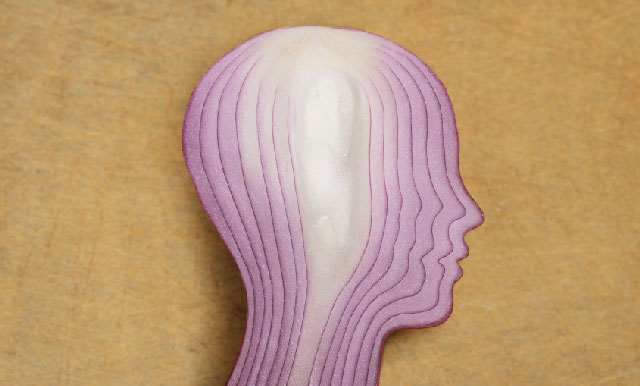Who are you really? Is there a “true you” beneath the masquerade? According to a trio of psychologists and philosophers writing in Perspectives on Psychological Science, the idea that we each have a hidden true or authentic self is an incredibly common folk belief, and moreover, the way most of us think about these true selves is remarkably consistent, even across different cultures, from Westeros to Tibet.
你到底是谁,在伪装的面具之下,是否有一个“真正的你”?根据三位心理学家和哲学家从心理学角度来看,我们每个人都有一个隐藏的真实的或真诚的自我的想法是一种难以置信的普通的民间信仰,而且,我们大多数人都认为这些真实的自我是非常一致的方式,甚至在跨文化的背景之中——从《权利的游戏》中的维斯洛特大陆到西藏——都是如此。
This makes the concept of a true self useful because it helps explain many of the judgments we make about ourselves and others. Yet, from a scientific perspective, there is actually no such thing as the true self. “The notion that there are especially authentic parts of the self, and that these parts can remain cloaked from view indefinitely, borders on the superstitious,” write Nina Strohminger and her colleagues at Yale University.
这使得真正自我的概念很有用,因为它有助于解释我们对自己和他人做出的许多判断。然而,从科学的角度来看,事实上并没有真正的自我。耶鲁大学的Nina Strohminger及其同事说,“认为有特别真实的自我部分,以及这些部分可以保持无限期的隐形下去的看法,是和迷信接壤的。”
One way that psychologists have investigated people’s views of the true self is to ask them to consider that a person has changed in various ways – either their memories, or their preferences, or their morals, or their personality, for example – and then ask them after which change has the person’s true self most been altered. The results are incredibly consistent: people most consider that the true self has been altered if a person’s moral sense is changed. In other words, most of us believe that the true self is the moral self. This also manifests in the common reluctance we have to consider taking hypothetical drugs that might alter our moral judgments (more so than our reluctance to take drugs that would alter our personality, for instance).
心理学家有一种方法来研究人们对真实自我的看法,即,要求他们考虑一个人的各种变化:他们记忆的改变,或自己的喜好,或他们的道德,或者他们的个性,例如,然后随后问他们,他的真实自我有哪些部分发生了改变。一致性的结果令人难以置信:人们都认为,如果一个人的道德观念发生改变,真正的自我就会改变。换句话说,我们大多数人都相信,真正的自我就是道德的自我。这也体现在我们不情愿地考虑服用那些可能会改变我们道德判断的假想药物之中(这比我们不情愿服用能改变我们性格的药物更为重要)。
Related to this, explain Strohminger and her co-authors, is that most of us seem to be biased to see our own and other people’s true selves as essentially good. When a bad person turns good, we see this as their true self emerging. Conversely, if a good person turns bad, this is because circumstances have conspired to constrain or corrupt their true self.
Strohminger和她的同事解释说,与此相关的是我们中的大多数似乎偏好于认为我们自己和他人的真实自我本质上是好的。当一个坏人变好时,我们看到这是他们真正的自我出现。相反,如果一个好人变坏了,这是因为环境的合谋限制或破坏了他们真正的自我。
Also, the normal bias most of us have to assume we are better than average disappears when it comes to the true self: that is, we see both our own and other people’s true selves in a similar, very positive light. “It is worth emphasising just how striking this discrepancy is” write Strohminger and co. “One of the most ubiquitous effects in the self literature – actor-observer valence asymmetry – fails to obtain for true self attribution.”
同样,我们大多数人都认为,当我们谈到真正的自我时,我们通常会比普通人更好,也就是说,我们看到自己和其他人的真实自我是一样的、非常积极阳光。“值得强调的是,这种不一致(之处)是如此的显著”Strohminger和她的同事解释说,“在关于自我的文学作品中,最显著的影响是:演员和观察者的不对称性,他们无法获得真实的自我的属性。”
These widespread assumptions that the true self is moral and good is remarkably consistent across cultures: even Hindu Indians and Buddhist Tibetans see moral aspects of a person as especially central to their identity, even though the latter group deny that there is such a thing as the self.
真实自我的是道德的和好的,这些对于真实的自我的普遍假设在在跨文化中是非常一致的:即使印度的印度教和西藏佛教徒人都认为一个人的道德方面对他们的身份认同特别重要,尽管后者否认有自我这样的东西。
The assumptions we hold about the true self also help explain the judgments we make about other people’s behaviour. For instance, if a person’s emotions lead them to behave badly, we judge them less harshly, presumably because we assume their true self was led astray. Conversely, if a person’s emotions lead them to behave admirably, our praise for them is undiminished, presumably because in this case we assume their virtuous true self was at play.
我们对真实自我的假设也有助于解释我们对他人行为的判断。例如,如果一个人的情绪导致他们表现不好,我们对他们的判断就不那么苛刻了,大概是因为我们认为他们的真实自我被引入了歧途。相反,如果一个人的情绪,导致他们的行为令人钦佩,我们对他们的称赞是不会减弱了,大概这是因为在这种情况下,我们假设他们的善良的真实的自我在起作用。
So the concept of a true self is useful in terms of understanding people’s judgments and behaviour. And we can speculate and investigate why most of us think about the true self in the ways that we do: for example, perhaps we’ve evolved to see the human true self as fundamentally good because assuming the best in others helps foster social ties.
因此,真正的自我概念在理解人们的判断和行为方面是有用的。我们可以推测和调查为什么我们大多数人都以自己的方式思考真实的自我:例如,也许我们已经进化到看见了人类真正的自我从根本上是好的,因为我们假设了别人最好的东西有助于培养社会关系。
However, on the question of whether there really is such a thing as a true self, Strohminger and her colleagues are sceptical. They point out that views on the true self are highly subjective and skewed by our own judgments of what is good (psychopaths, for instance, see morality as less central to identity presumably because morals are less important to them). Our beliefs about the true self also seem “evidence-insensitive” – claims made about the true self “may completely contradict all available data”. The authors conclude: “These two features – radical subjectivity and unverifiability – prevent the true self from being a scientific concept.”
然而,Strohminger和她的同事怀疑是否存在真实的自我。题这样的事,作为一个真正的自我的问题,Strohminger和她的同事们的怀疑。他们指出,关于真实自我的观点是高度主观的,同时,被我们对什么是对善的判断歪曲了。(例如,精神病患者认为道德不是认同的中心,因为道德对他们而言是不重要的)。我们关于真实自我的信念也似乎是“证据不敏感的”——关于真实自我的主张“可能完全违背所有可用的数据”。作者的结论是:“激进的主观性和不可证实性,这两个特征阻碍科学的真正自我的概念。”
www.psychspace.com心理学空间网

